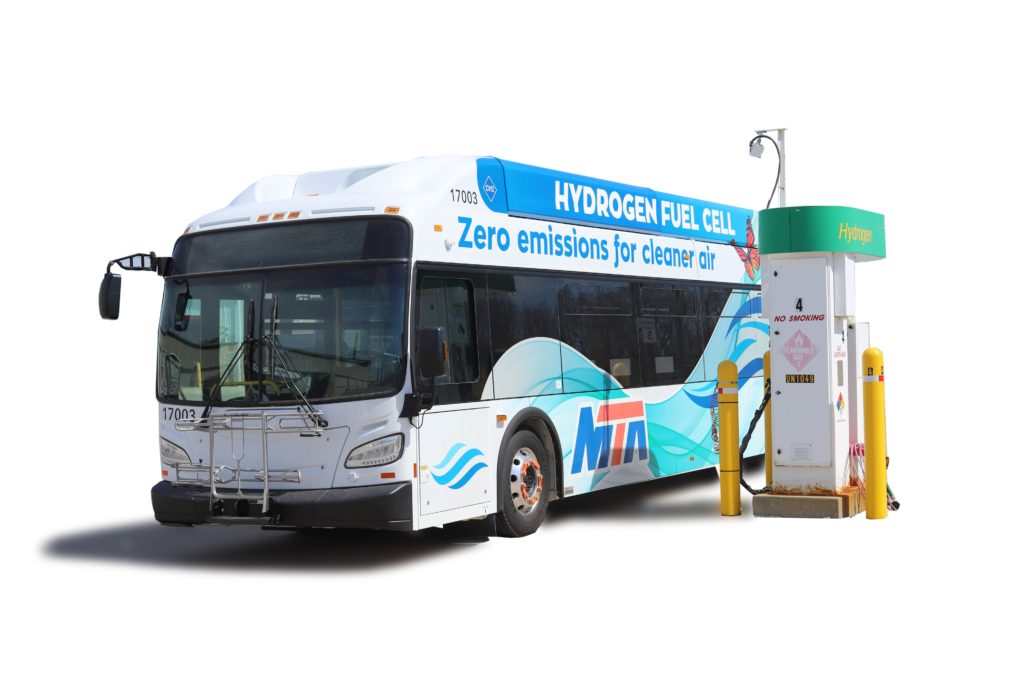The new electrolyser, purchased by Trillium on behalf of the Mass Transportation Authority (MTA) of Flint, Michigan, will address the growing need for hydrogen production as MTA expands its fleet of hydrogen-fuelled buses.
Trillium, a part of Love’s Travel Stops & Country Stores, is known for its innovative energy solutions, including hydrogen fueling infrastructure, compressed natural gas (CNG), electric vehicle (EV) charging, and solar energy systems. With an existing Nel electrolyser in operation at the Champaign-Urbana Mass Transit District, Trillium is reinforcing its experience with electrolysis as a source of hydrogen fuel for zero-emission transit operations.
“Trillium looks forward to collaborating with Nel Hydrogen on Flint MTA’s expansion to their hydrogen fueling station. Together we’re building the future of zero-emissions transportation by focusing on the long-term benefits and clean fueling goals of hydrogen in the Flint community,” said Ashish Bhakta, Manager of Business Development, Zero-Emission Solutions at Trillium Energy Solutions.
“We’re not only advancing hydrogen fueling technology but also empowering industries to make sustainable choices for their businesses.”
Flint MTA has been a pioneer in hydrogen mobility for more than 10 years, and has operated a Nel electrolyser to supply hydrogen to it’s initial fuel cell bus deployment since 2012. This latest expansion is part of an $20+ million initiative to scale up hydrogen production and fleet capacity, with the goal of enhancing clean and efficient public transportation. Trillium will provide O&M services for the station ensure a reliable supply of hydrogen for MTA’s growing fleet.
“The Mass Transportation Authority has developed a hydrogen fuel cell program dating back to 2011. Since that time, many efforts are underway to expand our capacity for fueling and adding more vehicles. One such effort includes adding another electrolyser unit to our hydrogen fueling station, and we are excited to work with Trillium and Nel Hydrogen on this project,” says Ed Benning, MTA General Manager/CEO.

Hydrogen fuel cell bus (FCB) technology has proven especially effective in Flint’s colder climate, where harsh winters reduce the operational performance of battery-electric buses (BEB). Unlike BEB alternatives, hydrogen fuel cell buses maintain their range and operational efficiency in cold weather, ensuring uninterrupted service and the ability to serve the same routes as diesel buses.
“Hydrogen is proving to be an excellent solution for transit agencies like MTA, where fast fueling and long-range capability support their operational requirements,” says Steve Szymanski, Vice President of Sales and Marketing at Nel. “As a repeat customer, Trillium’s continued trust in Nel underscores the reliability of our solutions and the growing potential of hydrogen as a zero-emission solution for transit.”
Nel’s collaboration with Trillium and Flint MTA reflects a shared vision for the future of zero-emission public transportation. FCB’s offer a viable pathway to reducing carbon emissions for use cases where payload, fueling time and range are important factors, especially where battery electric solutions cannot offer the same performance characteristics throughout the various seasons of the year. This partnership is especially impactful in regions with challenging climates, where hydrogen demonstrates its ability to deliver a zero-emission solution without reducing performance or fleet capability.
“The partnership between Trillium, Nel Hydrogen, and Flint MTA highlights how hydrogen can be a no-compromise solution for transit agencies on their path to zero-emission,” says Szymanski. “We are proud to deliver the technology that enables agencies like MTA to lead the way in sustainable mobility without lowering the delivered service quality to their customers.”
MTA recently secured $11 million in Federal funding to expand production capacity and infrastructure, enabling the addition of more hydrogen fuel cell buses to its fleet. The goal is to have 17 to 20 FCB’s in the MTA fleet by 2029. The initiative underscores the scalability of hydrogen solutions and sets an example for other regions considering hydrogen as a zero-emission alternative for their transit operations.
The new MC250 electrolyser is scheduled for commissioning in 2026 marking another milestone in MTA’s journey toward a cleaner, more sustainable transportation future.